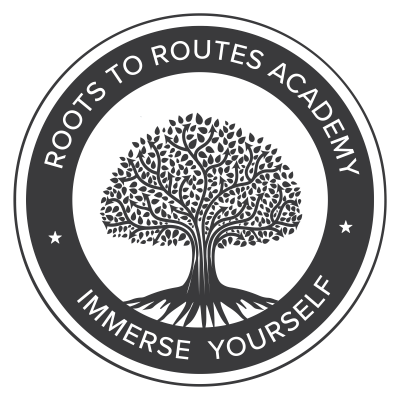Are There Any Tangible Benefits to Learning in a Culturally Relevant Environment?
January 17, 2025

Really, are there any tangible benefits to learning in a culturally relevant environment?
When we talk about education, most of us imagine classrooms where students sit quietly, listen to lessons, and absorb facts from a textbook. But pause for a moment and ask yourself: What is education truly for? Is it just about memorizing equations or acing tests? Or is it about understanding, connecting, and thriving in a world where identity matters as much as intellect?
For Black students navigating an education system often built without them in mind, these questions become even more urgent. The reality is that traditional schools are not always designed to reflect the lived experiences, histories, and cultural pride of Black children. Many students feel unseen, unrepresented, and ultimately disengaged. And when students disengage, the ripple effects are undeniable—lower academic achievement, eroded confidence, and a sense of alienation from their own potential.
So, let’s cut to the heart of the matter, again I ask: Are there truly tangible benefits to learning in a culturally relevant environment? The answer is a resounding yes. Not just feel-good statements, but real, measurable benefits that shape academic performance, social development, and lifelong success.
This is the transformative work happening at Roots to Routes Academy, where education is not one-size-fits-all. It is a space where Black students in Ontario can see themselves reflected in every lesson, find meaning in their learning, and build confidence to navigate the world boldly.
Why Does Culturally Relevant Education Matter?
We’ve written a couple of articles on this topic alone, but to simply answer this question, consider this: Have you ever been to a meeting or gathering where everyone seemed to speak a language you didn’t understand? How long did it take before you tuned out? Now imagine this scenario, but it’s not a meeting—it’s every school day for 12 whole years of a child’s life.
That is often the reality for Black students in traditional schools. The curriculum is heavily Eurocentric, prioritizing Western history, literature, and perspectives while marginalizing or erasing the contributions of other cultures. This creates what some researchers call a “cultural disconnect,” where students struggle to see how the lessons apply to their lives.
The Power of Representation in Learning
Representation is not just a buzzword; it’s a bridge to understanding and engagement. Studies show that students are more likely to succeed when they see themselves reflected in their learning environment. For example:
- A study from Johns Hopkins University found that Black students who had at least one Black teacher by third grade were 13% more likely to enroll in college—and this percentage jumped to 32% for Black boys.
- According to the Ontario Human Rights Commission, inclusive teaching practices reduce dropout rates and significantly boost engagement among marginalized groups.
At Roots to Routes Academy, we take this research to heart, crafting a curriculum where Black history, achievements, and cultural practices are not an afterthought but an integral part of every lesson.
The Tangible Academic Benefits

1. Better Grades Through Connection
When students see themselves in their education, they connect more deeply to the material. This isn’t just anecdotal—it’s backed by evidence. A report from the National Education Association (NEA) revealed that culturally responsive teaching boosts comprehension and problem-solving skills.
For example, at Roots to Routes Academy, math problems might incorporate real-world scenarios involving Black inventors or African trade networks. Instead of abstract numbers, students engage with meaningful stories, which enhances understanding and retention.
2. Critical Thinking and Innovation
By exposing students to their cultural heritage, culturally relevant teaching encourages them to think critically about the world. At Roots to Routes, discussions on historical movements or literature by Black authors challenge students to analyze, question, and innovate—skills that are critical for success in any field.
3. Academic Resilience
Imagine a student struggling with a math concept. In a traditional school, they might give up, thinking, “I’m just not good at this.” At Roots to Routes, teachers use cultural examples to reframe the struggle, showing how perseverance is deeply rooted in the stories of Black leaders and trailblazers. This mindset builds resilience and encourages students to push through challenges.
The Social and Emotional Benefits
1. Boosting Confidence and Identity
For Black students, learning in an environment that affirms their identity is transformative. When the curriculum celebrates their heritage, students develop a sense of pride and belonging. They walk into classrooms not as outsiders but as vital contributors to the story of education.
Roots to Routes fosters this environment through activities like storytelling workshops, where students share family histories, and discussions on Black excellence in science, art, and politics.
2. Building Community and Support
At traditional schools, Black students often feel isolated, especially in predominantly white classrooms. A culturally relevant environment fosters connection—not just between students and teachers but also among peers who share similar experiences. This sense of community is critical for emotional well-being and resilience.
3. Empowering Future Leaders
Culturally relevant education doesn’t just prepare students for the next grade—it prepares them for life. At Roots to Routes, students learn about leadership through examples like Nelson Mandela or Rosa Parks, and they’re encouraged to apply these lessons to their own lives.
The Roots to Routes Academy Difference

Contrary to what some think, Roots to Routes Academy is not just a school and it’s sure not a tutorial service—it’s a movement. Here’s how we’re redefining education for Black students in Ontario:
1. A Curriculum That Reflects Your Child
Every subject—from math to history—is designed with cultural relevance in mind. This isn’t about adding a Black History Month module; it’s about embedding Black excellence into every aspect of learning.
2. Teachers Who Understand
Our educators are not just teachers; they are mentors who understand the unique challenges Black students face. One of our founders Korina Thomas-Reynolds is at the forefront in the fight for better education for Black students in Canada. With their guidance, students receive the support they need to thrive academically and socially.
3. A Safe, Empowering Space
Roots to Routes Academy is a sanctuary where students can express themselves freely, celebrate their identities, and grow into confident, capable adults.
What’s at Stake?
Yes, there’s something at stake. Parents, consider this: The education system is not neutral. It either uplifts your child or forces them to conform to a narrative that diminishes their potential. By choosing a culturally relevant education, you’re not just giving your child a better chance at academic success—you’re giving them the tools to navigate life with confidence, pride, and purpose.
Call to Action: Enroll at Roots to Routes Academy Today
Your child deserves an education that sees them, values them, and empowers them. Don’t wait for the system to change—take charge of your child’s future today. Enroll them at Roots to Routes Academy, where learning is not just about passing tests but about unlocking potential, celebrating identity, and achieving greatness.
Visit Roots to Routes Academy to learn more and secure your child’s place in a school that’s transforming lives, one lesson at a time.
Because education should never be one-size-fits-all—it should be as unique, brilliant, and powerful as your child.
![]()
Related Posts
We’re So Glad You Made It Here
We know you might still have a few questions or concerns and that’s completely okay. We’re here to listen, to support, and to make sure you have all the information you need.
If something’s on your mind, don’t hesitate to reach out. Just send us a quick message, we’re happy to help.
Once you do, a member of our team will get back to you shortly and you’ll also start receiving our free, value-packed newsletters filled with tips, resources, and insights to support your child’s learning journey.

